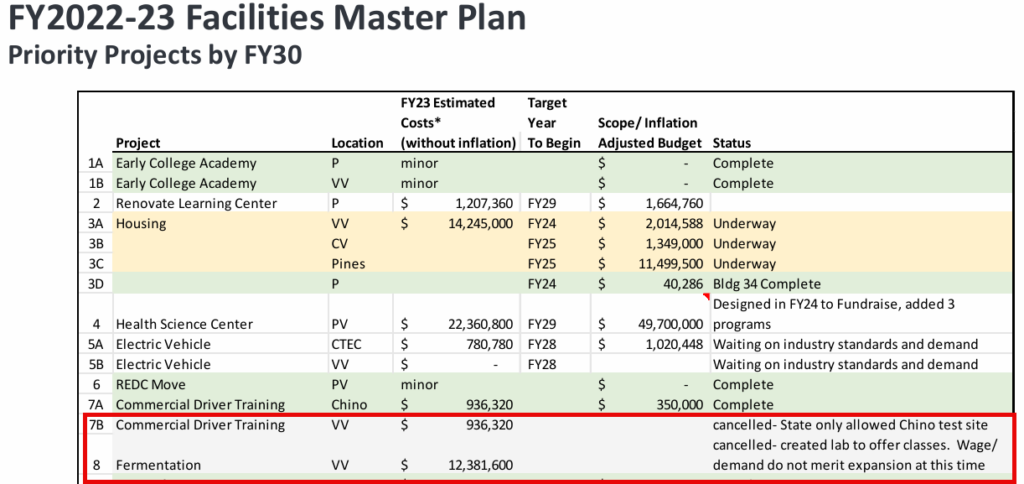Kuykendall talks about “hate,” “negativity” and appears to blame Kiel for keeping meetings on zoom
At its March 26 meeting, Third District Yavapai Community College Governing Board member Toby Payne requested that the official minutes of an earlier meeting, now before the Board for approval, accurately reflect Representative Patrick Kuykendall’s comments directed at Board member William Kiel. He specifically asked that the following statement be included in the February minutes. (Check video clip for accuracy.)
Also, at Board business (5)(c) I respectfully request the following be added: (At 14:54:04.) Board member Kuykendall said in part that he had seen nothing from Board member Kiel but “negativity and attacks on the Chairman and the president and the threats have got to end.” “Mr. Kiel since day one has made threats and been so disrespectful” and Kuykendall claimed he had never sat on a Board with so much “hate and discontent” coming from a Board member. He went on to ask what could be done legally to Mr. Kiel and claimed the reason the Board members were not holding in-person live meetings is when “somebody mentions firearms and they are unstable, it is a threat.” Mr. Kiel was not allowed to respond to the allegation by Mr. Kuykendall that he was “unstable” or anything else despite a request from him to be allowed to do so.
During discussion of Payne’s motion, Mr. Kuykendall said he had “no comment” and that he stood “by his actions.” Mr. Bracety said the motion didn’t “warrant comment.” Chair McCasland said she didn’t think the wording “was exactly accurate.” She also said she “did not approve of putting this into the minutes—the video will show it.” Moreover, she said she recalled the attorney at the meeting stating that the discussion must end because it was not appropriate.
Mr. Kiel commented, “It seems futile, but that is an accurate representation of what occurred during that meeting. I believe I was slandered at that meeting, and I have not yet decided how to proceed with that.”
The motion was rejected by a 3-2 vote, with Chair Deb McCasland, Patrick Kuykendall, and Steve Bracety voting in favor. Only Representative William Kiel voted in support of Payne.
A video clip of this portion of the meeting may be viewed below:
 Yavapai Community College announced that effective April 21 Mr. Tim Kneip will become its new Athletic Director. Kneip replaces Michael Tenette, who was hired in September 2023. Tenette replaced Brad Clifford. Clifford who announced his resignation in June 2023 after dedicating over 35 years to the institution. Tenette was hired in September of that year.
Yavapai Community College announced that effective April 21 Mr. Tim Kneip will become its new Athletic Director. Kneip replaces Michael Tenette, who was hired in September 2023. Tenette replaced Brad Clifford. Clifford who announced his resignation in June 2023 after dedicating over 35 years to the institution. Tenette was hired in September of that year. The Patty McMullen-Mikles Art Gallery will host an opening reception for the Spring Student Art Exhibition on Thursday, April 10 at Yavapai Community College’s Verde Valley Campus. This exhibition features student works from various disciplines, including Drawing, Painting, Ceramics, and Jewelry.
The Patty McMullen-Mikles Art Gallery will host an opening reception for the Spring Student Art Exhibition on Thursday, April 10 at Yavapai Community College’s Verde Valley Campus. This exhibition features student works from various disciplines, including Drawing, Painting, Ceramics, and Jewelry.

